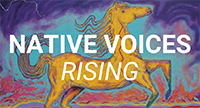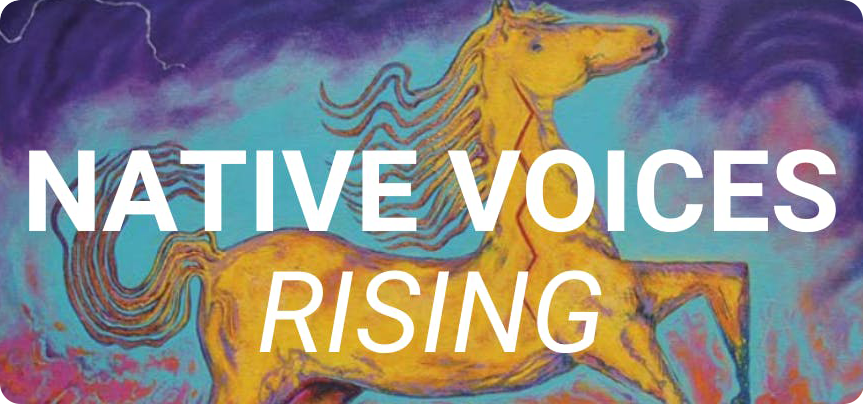From the Dakota Access Pipeline protests at Standing Rock to the reauthorization of the Violence Against Women Act, Native organizers and advocates have been and remain at the vanguard of social change and are doing so with little philanthropic support.
According to multiple studies, total philanthropic dollars dedicated to causes that benefit Native communities – let alone Native-led efforts – hovers in the range of 0.3-0.4% of all grantmaking by philanthropic institutions. Native Voices Rising (NVR) seeks to remedy the historic and enduring underfunding of Native led social change efforts by facilitating a process for non-Native donors and institutions to learn from and build relationships with Native grassroots leaders and to support Native-led organizing and advocacy.
By investing in this pooled fund, NVR’s supporters, including those who are new to funding Native-led social change work:
- Become a part of a learning community aiming to increase knowledge and visibility of issues, needs, and aspirations within Native communities;
- Build trusting relationships with and become allies to nearly 100 Native-led groups building power and prosperity and addressing the most urgent issues of our time; and
- Shift power to and center the lived experiences of Native community leaders by way of the fund’s participatory grantmaking process.
While we have celebrated an increase in Native-led funds, as well as increased Native leadership within some U.S. foundations, vast swaths of philanthropy still neglect the vital role of Native organizing and advocacy in advancing social and climate justice.
As a collaboration between a Native philanthropic affinity group (NAP) and a non-Native public foundation (CCF), NVR is uniquely positioned to engage and guide non-Native donors and funders into the opportunity to learn about and resource Native-led social change work, while centering Native community members in the fund’s decision-making process.
Native Voices Rising has proven to be a vehicle to enable philanthropy to do more.
What non-Native people know about Native communities largely stems from our education system or the media, where stereotypes and myths are prolific and Native voices are often missing. As a result, Native peoples, histories, cultures, and contributions are frequently misunderstood or made invisible.
In the nonprofit and philanthropic sectors, even the limited resources intended to benefit Native communities frequently overlook smaller, grassroots Native groups in favor of larger non-Native organizations.
With more than 600 tribal nations across the U.S., resourcing the resilience, wisdom, and ingenuity of Native organizers and advocates at the grassroots level is essential for addressing our nation’s most complex and intrenched social problems, including climate crisis, disenfranchisement, police brutality, mass incarceration, gender-based violence, wealth inequality, and health disparities.
As part of its growing partnership with Common Counsel Foundation in the Native Voices Rising grantmaking collaborative, Native Americans in Philanthropy is developing a new platform for Native youth leadership in philanthropy. In 2021, our goal is to significantly increase the number of Native youth-led and youth-serving organizations being funded in our Native Voices Rising community. To do this, we will develop a new leadership team for
the project composed of Native youth leaders from across the country who will develop their own participatory grantmaking strategy and help us advocate for tribal communities in the philanthropic sector. Through a new partnership with the Center for Native American Youth at the Aspen Institute, the Native youth leadership team will:
- learn about the philanthropic sector, how it influences policy and power, and why their voice matters; and
- develop effective and impactful grantmaking strategies together.
Our partners will develop a curriculum and facilitation process for these young leaders grounded in culture and healing. We also plan to share what we learn from this approach with the philanthropic sector.
In addition to awarding funds through a participatory grantmaking process to Native youth-serving organizations across the country, NAP, CNAY, and CCF will identify a range of opportunities through their philanthropic networks for this Native youth leadership team to organize roundtables and other events with funders to advocate for increased and more meaningful funding according to their priorities.

